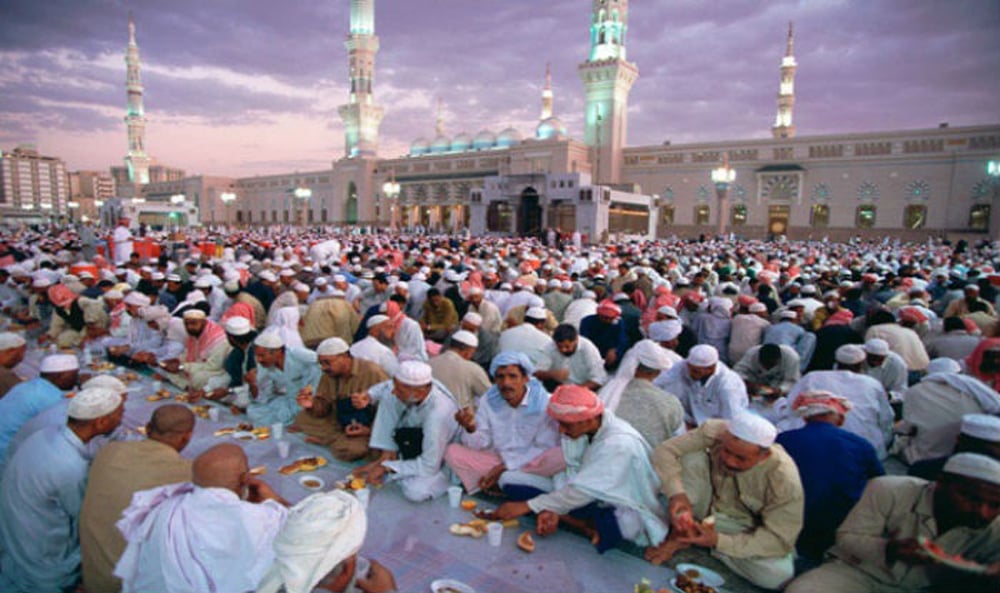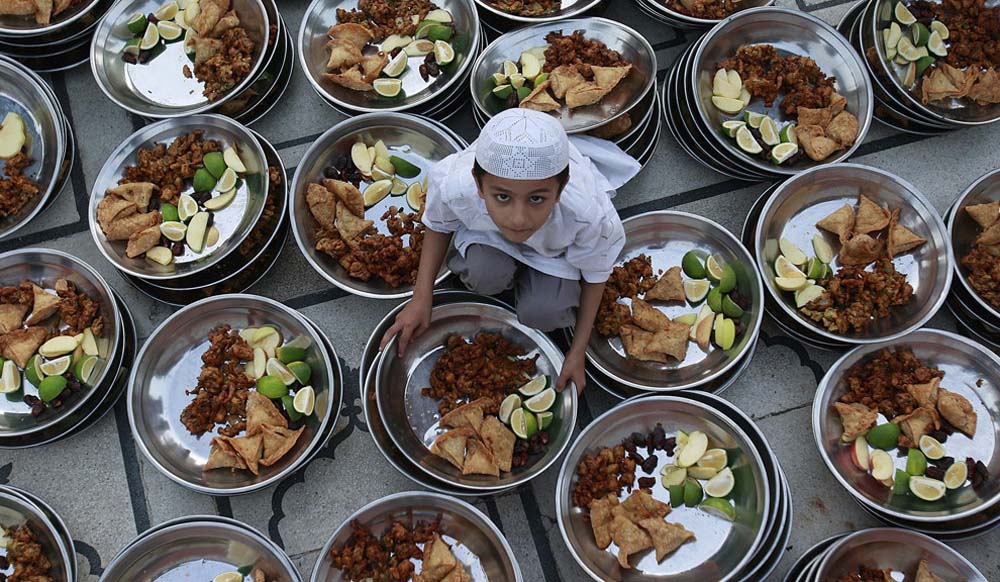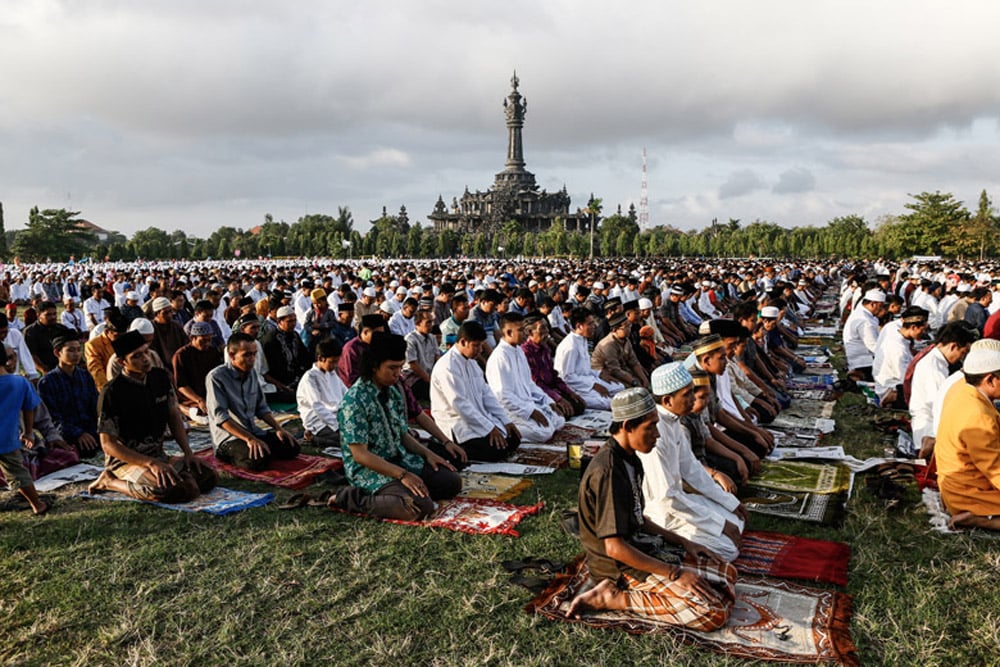

RIYADH: The world´s nearly 1.5 billion Muslims on Saturday began Ramazan, the holy month of dawn-to-dusk fasting and prayers.
It is sacred to Muslims because tradition says the holy Quran was revealed to the Prophet Mohammed (PBUH) during that month.

Here are four questions and answers about Ramazan:
What is Ramazan?

Ramazan is one of the five pillars of Islam. The others are the profession of faith, "there is no true God but Allah and Mohammed (PBUH) is his messenger"; the obligation to pray five times a day; charity; and the pilgrimage to Makkah.
How does it take place?
It lasts 29 or 30 days. During that time, believers abstain from eating, drinking -- even of water – smoking between sunrise and sunset.
The fast is conceived as a spiritual struggle against the seduction of earthly pleasures.
But for the evening "break-fast", known as "iftar", festive meals traditionally bring families together and there is intense social activity.
The Eid al-Fitr festival marks the end of Ramazan.
Who is involved?

Fasting is required of all believers who have passed the age of puberty, but it is recommended that children be progressively exposed to the practice.
Pregnant or nursing women, the sick, travellers, and fighters have the right not to fast, although they have a duty to carry it out as soon as they are able to.
How is date of Ramazan determined?

Ramazan corresponds to the ninth month of the Hijri calendar to which Muslims refer for their religious festivals.
It relies on the cycle of the moon.
This calendar has 11 days less than the solar calendar, meaning that the start and end dates of Ramazan vary each year.
The first day is determined by the sighting of the crescent moon, the first quarter of a new moon.
It must be visible to the naked eye and recorded. Scholars meet to determine the exact timing, which varies around the globe.
Religious authorities in Saudi Arabia, home of Islam´s two holiest sites at Makkah and Madina, on Thursday determined that Ramazan would start on Saturday.